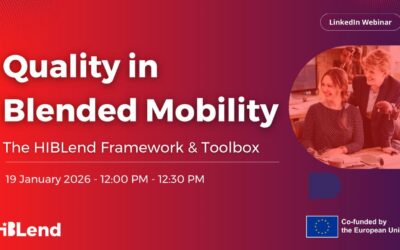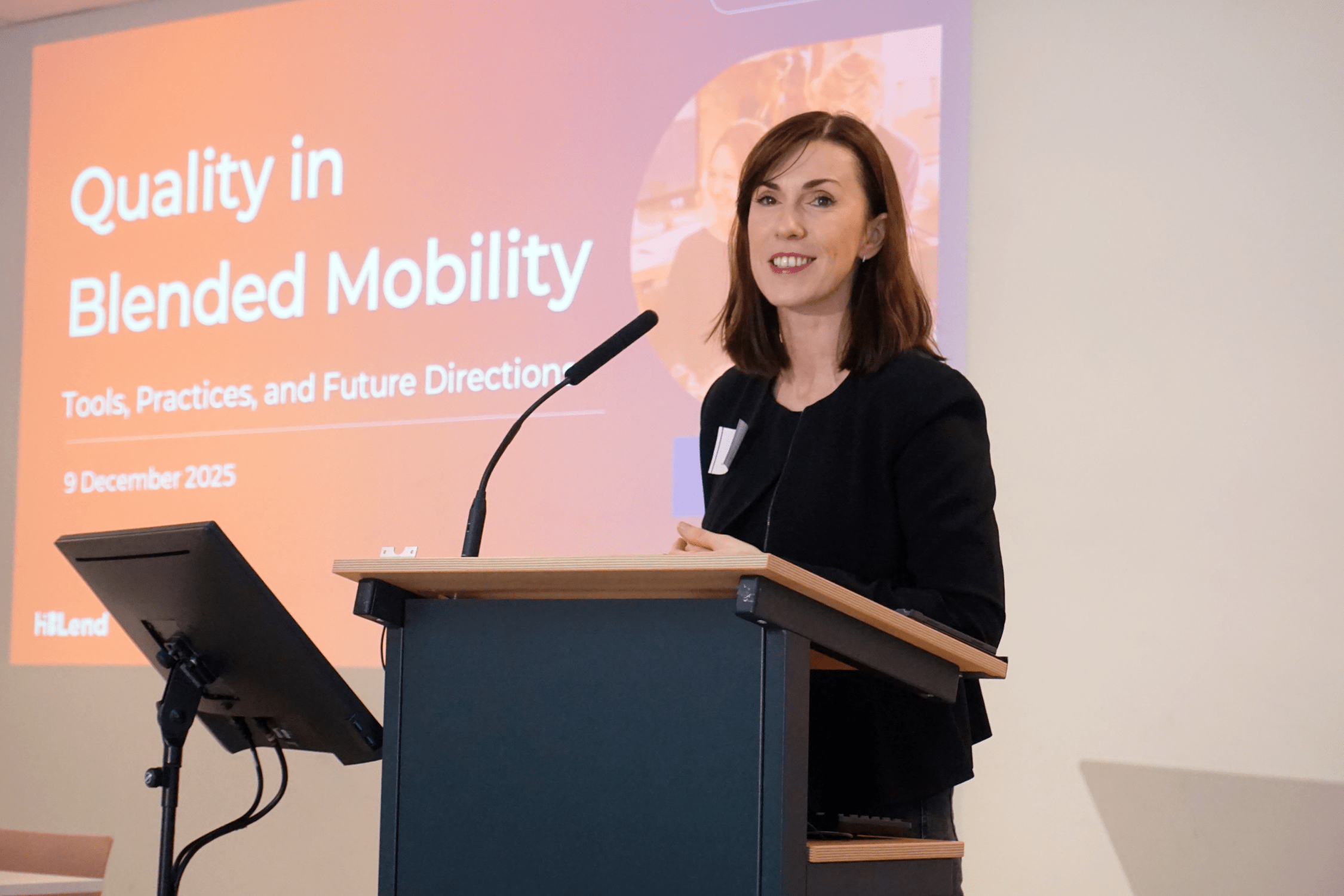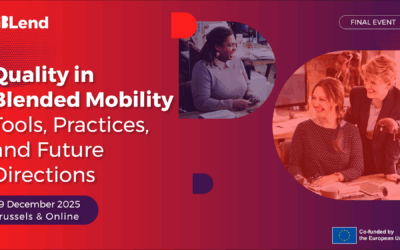About
What is HiBlend?
The HIBLend project aims to increase interest in and enhance higher education institutions’ capacity to provide high-quality blended mobility options for students. The project will accomplish this by creating and sharing a framework that guides quality considerations for existing models and approaches to blended mobility, as well as processes for improving existing activities and creating new ones.
The project focuses on three main pillars:
1. Designing a comprehensive framework for quality-driven blended mobility, which includes:
- Mapping and structuring existing and emerging models of blended mobility
- Investigating quality expectations of different actors and institutional approaches to guaranteeing and controlling quality
- Using a mixed method approach involving a large-scale survey, focus groups, and expert/stakeholder workshops to gather qualitative data. These methods will be instrumental in harvesting rich qualitative data from HE professionals and institutions more advanced in the topic, and in evaluating its value and potential for transfer to other institutional settings.
The work will result in a typology of approaches to blended mobility and an overview of related quality expectations and institutional approaches to address them. This will lead to the design of a comprehensive framework offering guidance for institutions on the key principles and processes of blended mobility programmes.
2. Internally testing the framework by TAMK and MU and externally validating it through an open call for participation from interested higher education institutions.
3. Focusing on interactive visualization and dissemination of the framework through a project digital toolbox, consisting of a “heatmap” of good practice examples and institutional testimonials to raise awareness of quality blended mobilities among institutions and students, and the community of practitioners.
Overall, the HIBLend project seeks to enhance blended mobility opportunities for students by creating a framework that guides institutions towards providing high-quality options.
The HIBLend project plan consists of five work packages, two of which are cross-cutting (WP1 and WP5), and three consecutive complementary work packages (WP2, WP3, and WP4).
Work Package 1
WP1 will focus on project management, coordination, and quality assurance. This package will ensure that the project processes and outcomes are of the highest quality by conducting internal and external reviews.
Work Package 2
WP2 will start by analyzing existing theoretical and practical approaches to develop a typology of blended student mobility models. The goal is to obtain a clear view of the current situation, which is continually evolving. The survey will gather data on higher education institution practices concerning blended mobility, with a focus on quality considerations. Before gathering responses, a pilot test will validate the survey.
Work Package 3
WP3 will analyze institutional approaches to defining quality blended student mobility based on WP2 survey findings. The mini-Delphi study will collect data on quality considerations in blended mobility from a multi-stakeholder perspective. Partners will be responsible for covering different quality assurance aspects based on their respective expertise (institutional/strategic, administrative, academic staff, and student perspective).
Work Package 4
WP4 will test and validate the HIBLend framework model, proposing quality-oriented measures, services, and activities that higher education institutions should consider when setting up and delivering blended mobility programs. TAMK and MU will test the framework and provide feedback for further finetuning and validation by the sector. Higher education practitioners will also test and validate the framework during external workshops.
Work Package 5
WP5 will build a community of practitioners in blended mobility, promote engagement among various higher education actors, and disseminate the project results across different channels, including the partners’ local, national and European networks of contacts, the final event in Brussels and the project digital toolbox, which will feature a heatmap of the framework and good practice in blended mobility.
Partners
ACA
European University Foundation
Masaryk University
The Accreditation Organisation of the Netherlands
Tampere University of Applied Sciences

Join the HIBLend LinkedIn Live Sessions
Join us for two short LinkedIn Live webinars introducing the HIBLend Framework on Quality in Student Blended Mobility and its interactive digital toolbox.
Quality in Blended Mobility: highlights from the HIBLend final conference
On 9 December, more than 140 participants, both in Brussels and online, gathered for the final conference of the HIBLend project.
HIBLend Framework and Digital Toolbox Released
Despite opening doors to more accessible, inclusive, and flexible international experiences, delivering high-quality Student Blended Mobility (SBM) remains a challenge for many institutions. The HIBLend Framework Model on Quality Blended Mobility has just been...
Quality in Blended Mobility: Tools, Practices, and Future Directions
HiBLend has explored how higher education institutions can design and implement high-quality blended mobility opportunities. The valuable insights, tools, and experiences will be presented on December 9 at this closing event.
Existing models
and approaches to student blended mobility
Quality perceptions
and considerations of blended student mobility approaches
HIBLend framework model
on delivering effective quality blended mobilities
HIBLend Community of Practitioners
built through a LinkedIn group.




